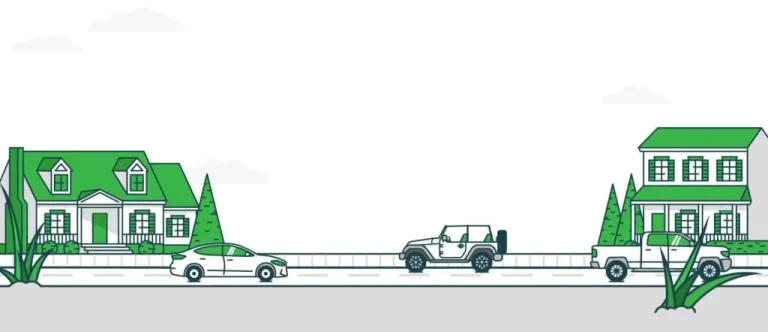North Carolinians aren’t required to carry personal injury protection or PIP on their auto insurance policies, and, in fact, the coverage type isn’t even offered in the state. Still, many drivers will add a similar coverage type, known as a first-party medical benefit (FPMB), to their policies so they’re better protected behind the wheel.
While PIP isn’t available in the Tar Heel State, many insurers offer FPMBs in the form of other coverages. Let’s check out what PIP is, why insurers don’t offer it, and what drivers add instead to their full coverage North Carolina auto insurance policies.
North Carolina PIP Explained
While all drivers are required to have vehicle insurance in North Carolina, they aren’t required to carry PIP on their policies. Actually, PIP isn’t even offered in the Tar Heel State, as insurers don’t offer the coverage type as an option for drivers when they’re building their policies. However, drivers who want a similar level of coverage offered by PIP may do so by adding a different FPMB to their policies.
While PIP is offered in no-fault and tort states alike, it isn’t offered in North Carolina because the Tar Heel State isn’t a no-fault state. No-fault states commonly offer PIP and even require it because drivers are to default to their own insurance coverage in the event of an accident. In tort states like North Carolina, drivers must instead rely on the at-fault party to cover the victim’s medical expenses and vehicle repairs.
In North Carolina, a minimum coverage policy contains at least $30,000 in bodily injury liability per person, $60,000 in bodily injury liability per accident, and $25,000 in property damage liability per accident, or 30/60/25 liability coverage. North Carolinians must also curry at least 30/60/25 in uninsured motorist (UM) coverage. Those who finance or lease their vehicles may be legally obligated to carry collision and comprehensive coverages on a full coverage policy.
Driving without insurance in the Tar Heel State is illegal. Those who fail to maintain the minimum coverage required in the state may face legal penalties like fines, fees, license and registration suspension, or even jail time, as the crime is classified as a misdemeanor. Those who fail to maintain sufficient coverage may also require an SR-22 form or a DL-123, as it’s called in the Tar Heel State. This form may inadvertently raise a driver’s premiums to a rate much higher than average, as the form signifies to insurers that a driver makes poor choices behind the wheel.
Drivers who maintain a minimum coverage policy have an adequate policy in the eyes of the law but may not feel adequately protected with such minimal coverage. Drivers may opt for a full coverage policy to have a more expansive range of protection, with optional coverages like underinsured motorist coverage, collision coverage, comprehensive coverage, medical payments coverage (MedPay), or gap coverage, among other options.
While PIP isn’t offered in North Carolina, drivers may opt for a full coverage policy with MedPay for a similar level of protection.
Does North Carolina Have PIP Coverage?
No, in North Carolina, PIP coverage isn’t offered. PIP is often required in no-fault states, and since North Carolina isn’t a no-fault state, insurers have decided not to offer such coverage. While PIP isn’t offered in the Tar Heel State, an alternate FPMB called medical payments coverage (MedPay) is offered for policyholders who would like coverage for their medical expenses in an accident regardless of fault.
PIP is an FPMB that drivers have on their policies to cover the medical expenses they may incur in an accident. Should a policyholder have PIP and be injured in an accident, they will default to their insurance coverage for assistance with their bills. PIP generally covers standard medical expenses like hospital visits, ambulance rides, prescription medications, and much more.
PIP may also cover more unlikely expenses like childcare, home care, or work loss, should the policyholder be severely injured in an accident. Policyholders first have to meet their deductible before receiving the benefits of their PIP coverage, or any coverage for that matter.
While MedPay is another FPMB, it doesn’t cover all the same things as PIP. MedPay is a bit less inclusive than PIP in that it doesn’t typically cover those unlikely expenses like work loss, child care, or other expenses that go beyond a medical institution. While MedPay may not offer as much coverage as PIP, it’s still an excellent coverage to add to a full coverage policy for those craving more coverage behind the wheel.
While adding a FPMB to one’s policy may cause premiums to rise, the extra investment in one’s safety may be worth it. A minimum coverage policy will always be the cheapest policy in the state, but North Carolinians are lucky to live in one of the cheapest states for auto insurance, so even a full coverage policy shouldn’t be too much of an extra strain on one’s bank account.
The average full coverage policy in the Tar Heel State costs about $1,340 annually, or about 20% less than the national average of about $1,670 annually. Even still, some of the top insurers in the state offer policies as low as 40% less than the national average, and many offer a vast array of stackable discounts drivers can use to lower their premiums even further.
What’s the North Carolina Personal Injury Statute of Limitations?
Since North Carolina PIP limits don’t exist, neither does a statute of limitations. However, the statute of limitations for most other coverages is about three years. This means drivers must file a claim with their insurance within three years of the incident to receive their benefits. However, the sooner you can file a claim, the better.
How To Get Car Insurance Quotes in North Carolina
If you’re interested in getting coverage like PIP in North Carolina, are a new driver in need of a policy, or are just curious about the rates you’re eligible for, the best way to see all your options is to get and compare quotes online. By getting and comparing quotes online, you can find a policy that fits in perfectly with your lifestyle and won’t break the bank.
Luckily, we’re quoting experts here at Clovered. We even have a free quoting tool you can use to access and analyze your unique quotes in minutes. If you have any questions about your quotes or prefer to chat with a real person, we have those, too! You can contact one of our licensed agents at 833-255-4117 or agent@clovered.com for further assistance.
The editorial content on Clovered’s website is meant to be informational material and should not be considered legal advice.




